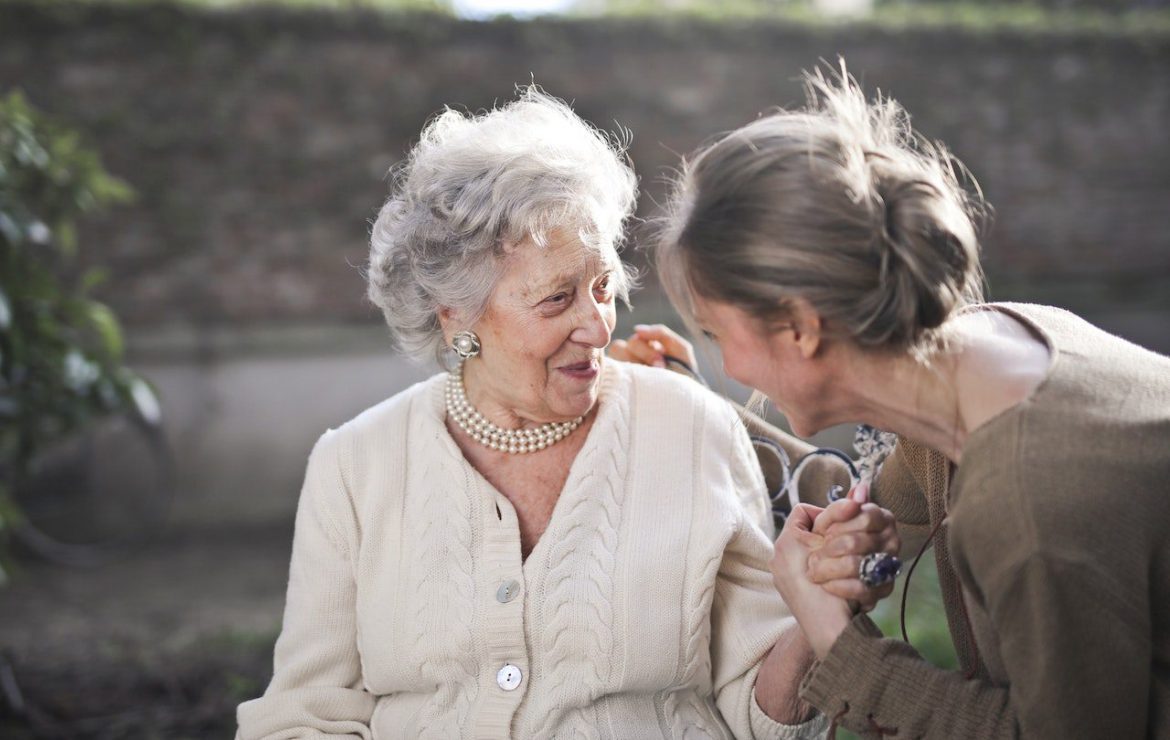The Importance of Dignity and Respect in Care

Requiring care can put the individual in a vulnerable position, as someone else becomes responsible for the fulfilment of some of their basic needs. Dignity and respect can make a world of difference when receiving care, as this enables the person to feel valued and respected for their own sake.
In this post, Four Oaks Healthcare looks at the importance of respect and dignity in care. As professionals with many years of experience, we know the significance of preserving and encouraging dignity in care homes, live-in care situations, hospices and more. Keep reading to find out why your organisation or the carers you intend to work with should have respect and dignity at the core of their practice.
Why is dignity in health and social care important?
Dignity is a fundamental human right that ensures people are treated ethically and with respect. Maintaining patient dignity is a long-established principle of social care, as people feel particularly vulnerable when sick or elderly and in need of care.
Dignity and respect are so important in social care for a number of reasons. Here are the most important reasons to be compassionate in care:
- Care with dignity supports the individual’s self-respect
- It is important for patient health and mental well-being
- It enables healthcare professionals to build better relationships with patients
- It promotes fairness and equality in small and big ways
- It gives patients a sense of independence, autonomy and control over their own life
How to promote dignity and respect in care
If you focus on the cornerstones of care, everything else needed for high-quality care will follow. Here is how to promote these principles:
- Ask permission and respect personal space and possessions: Health and social care workers should, whenever possible, ask permission before touching a patient, entering a patient’s room, or touching their personal belongings. Respecting residents’ privacy in their homes or care home is of utmost importance.
- Treat patients as individuals: Keep in mind that the patient you are working with is an individual who has lived an entire life. They have a past and a future, and learning a bit more about this will allow you to offer personalised care the respects their value as an individual.
- Help patients to live independently: Patients should be provided with support, physical aids and information that can help them to live as independently and autonomously as possible for as long as possible. Providing live-in care may be the best way to do this, depending on their individual needs.
- Let patients choose their own clothing: Clothing is often expressive of our identities, personalities and preferences. So not allowing an individual to choose what they wear can be very harmful to their dignity.
- Communicate respectfully: Patients should always be spoken to as equals, with politeness and without patronisation. Healthcare workers should also take care to listen carefully and respect their wishes.
- Provide information and involve them in decisions relating to their care: Provide patients with all the information they need to make informed and autonomous decisions about their own care. A lack of control can be dehumanising for an adult, so it is important to involve them in the decisions made about their individual situation.
- Handle hygiene sensitively: One of the most difficult parts about receiving more intensive care is the lack of physical privacy. While you may be used to seeing people’s bodies on a daily basis, the patient will not be used to revealing theirs. So if you are required to help the person with bathing and dressing, be sure to handle the situation sensitively and with tact.
- Address the person properly: A core part of personal identity is an individual’s name. Using their name while taking into account whether they prefer the use of their first name or surname, as well as the pronouns and titles they prefer, is a great way to preserve dignity.
Are you looking for high-quality care?
Four Oaks Healthcare is the best live-in care agency in the UK, and we have many years of experience offering compassionate, dignified care. If you would like to know more about our services, please call us on 0333 772 0156. We look forward to supporting you or your loved one.




